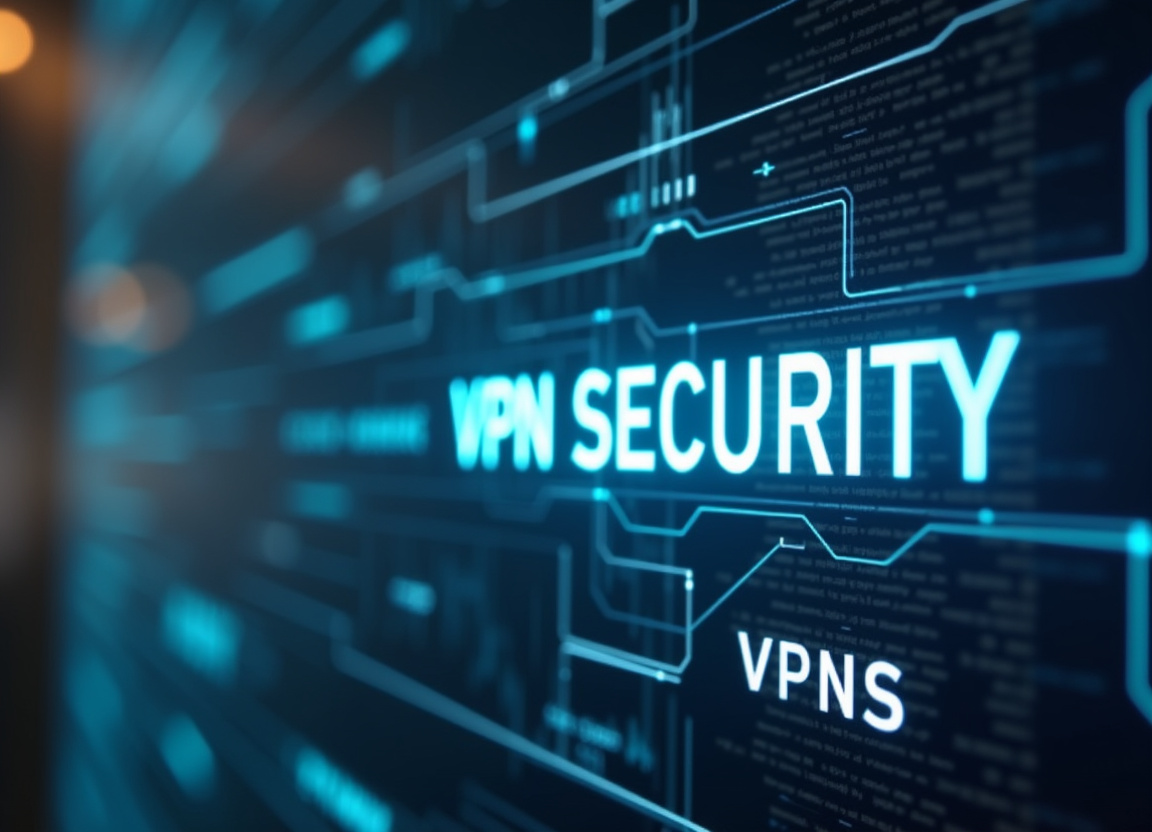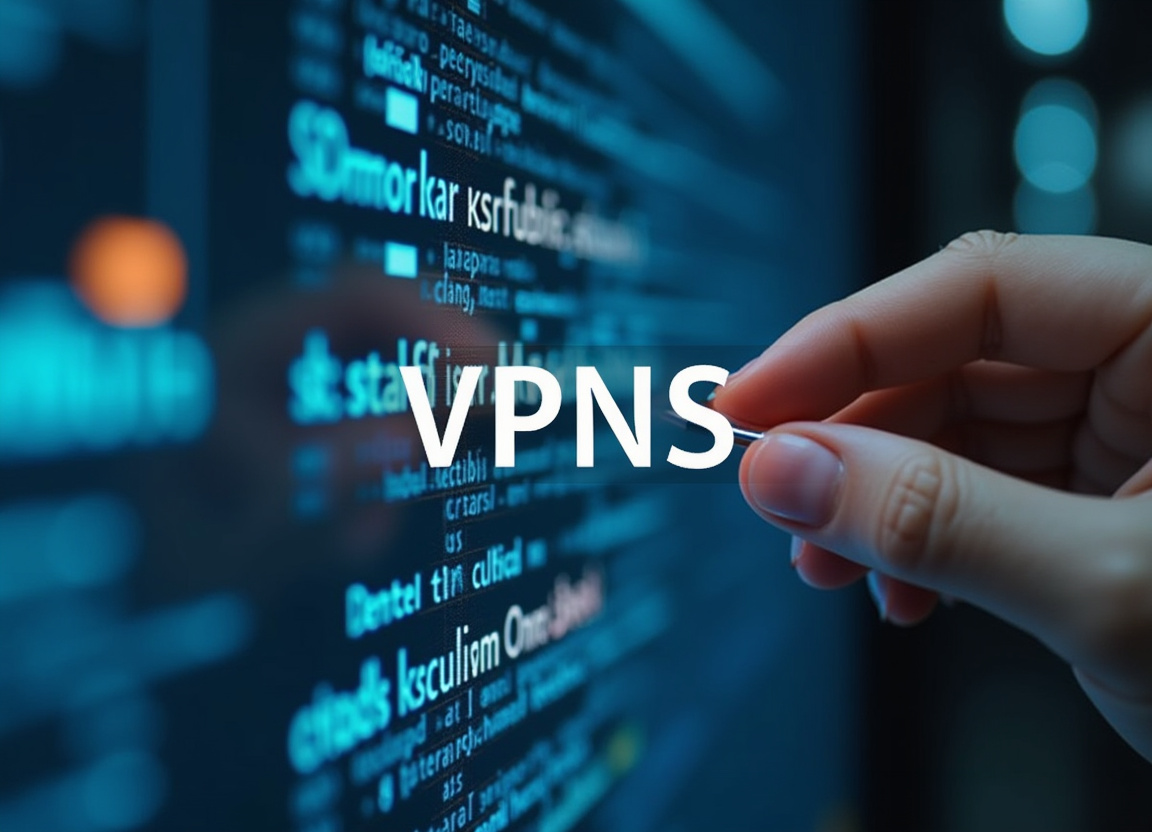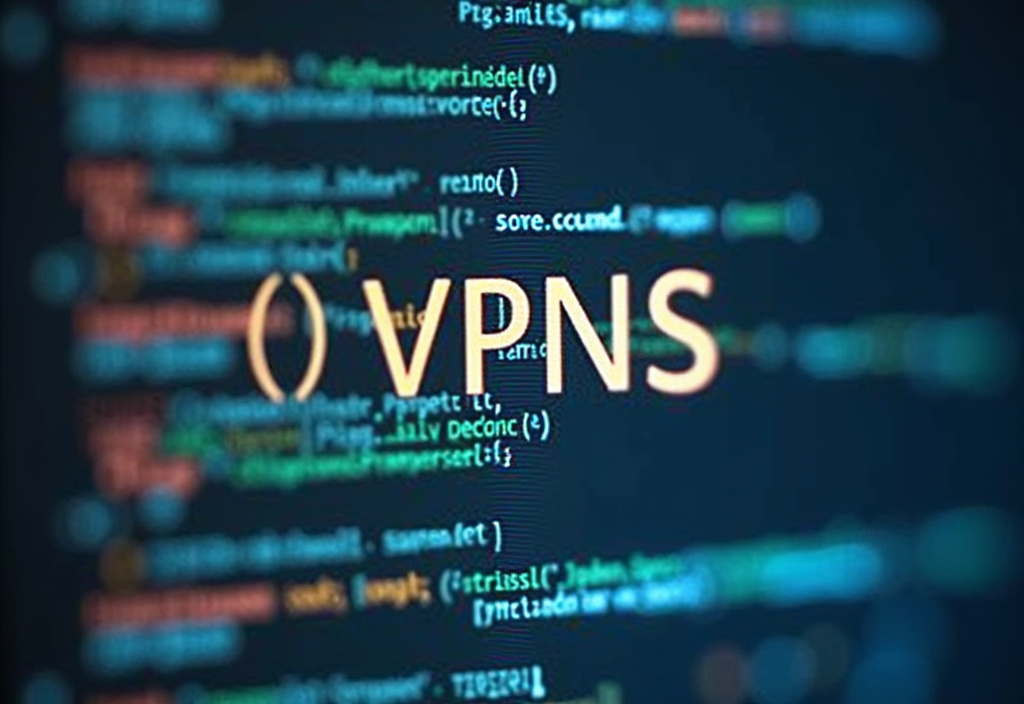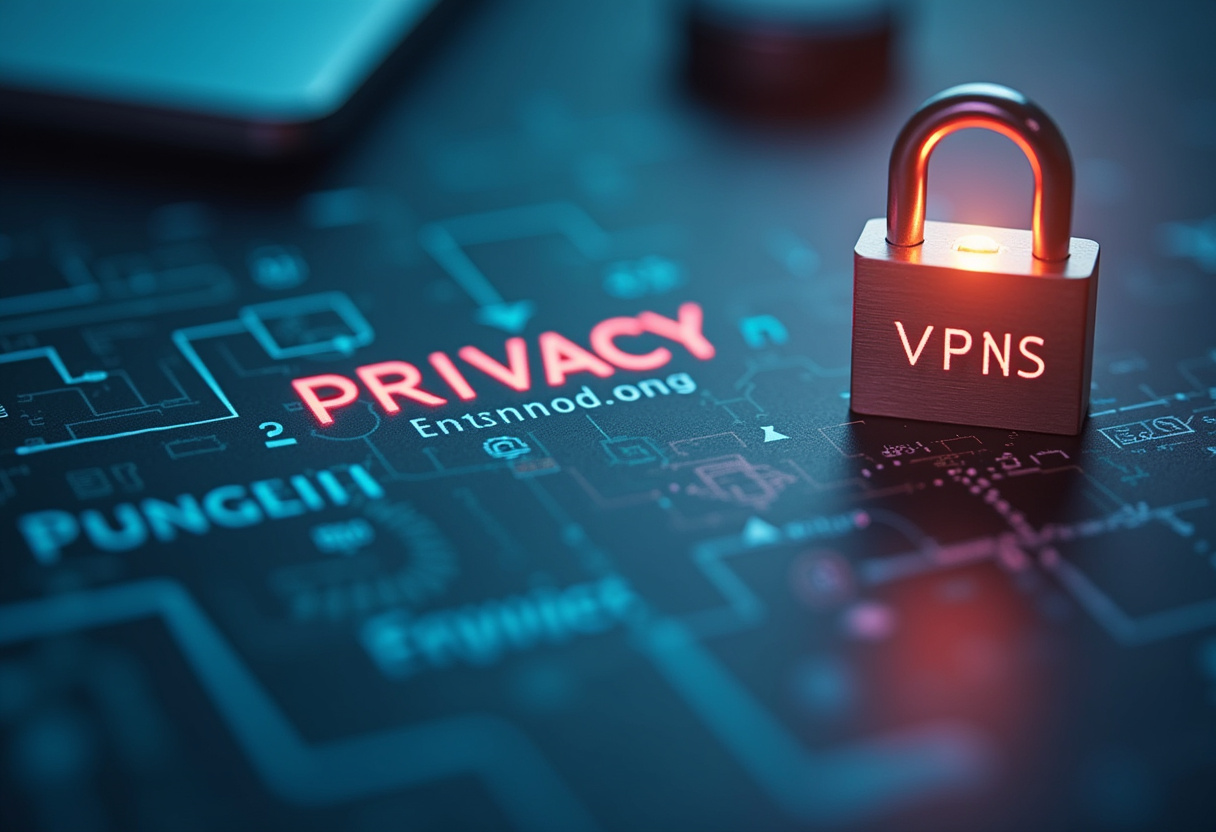VPNs for Campus Security: Protecting Institutional Networks

Table of Contents
VPNs for Campus Security: Protecting Institutional Networks
The modern university campus is a vibrant ecosystem of information, collaboration, and innovation, underpinned by a complex digital infrastructure. However, this interconnectedness also presents significant security challenges. Educational institutions are increasingly targeted by cybercriminals seeking to exploit vulnerabilities in their networks and access sensitive data, ranging from student records and financial information to groundbreaking research and intellectual property.
A crucial defense mechanism in this digital arms race is the implementation of a robust campus VPN (Virtual Private Network). This article explores the vital role VPNs play in securing educational institutions' networks, ensuring the integrity of their data, and safeguarding student information against a growing landscape of cyber threats. A campus VPN acts as a secure, encrypted tunnel, creating a private network connection over the public internet.
This encrypted tunnel safeguards data transmitted between a user's device and the university's network, making it exceptionally difficult for cybercriminals to intercept or decipher sensitive information. Imagine a physical mail carrier transporting confidential documents; a VPN acts as an armored vehicle, shielding the contents from prying eyes during transit. This is particularly important for students, faculty, and staff accessing university resources remotely, whether from their dorm rooms, off-campus apartments, or while traveling.
Without a VPN, their data is vulnerable to interception on public Wi-Fi networks or through other unsecured connections. The deployment of a campus VPN isn't simply about installing a piece of software; it’s about building a comprehensive security strategy that encompasses access control, data encryption, and user education. It entails carefully configuring the VPN to integrate seamlessly with the existing network infrastructure, selecting appropriate encryption protocols, and implementing strong authentication methods to verify user identities.
Furthermore, it necessitates clearly defining VPN usage policies, educating users about its benefits and best practices, and providing ongoing support to ensure its effective implementation. The reliance on digital tools in education has grown exponentially, particularly with the rise of online learning platforms. Students submit assignments, access course materials, and participate in virtual classrooms, all relying on a secure connection.
This creates a massive opportunity for cybercriminals to exploit vulnerabilities. If student information is compromised, it can lead to identity theft, financial fraud, and damage to their academic records. A VPN shields student information during transmission, providing a significant layer of protection against these types of attacks.
For educators, the deployment of a VPN means securing their research data, confidential communications with students, and intellectual property. Many faculty members conduct research that has significant commercial or scientific value. Protecting this intellectual property from theft or unauthorized access is paramount.
A VPN helps safeguard research data, grant proposals, and other sensitive documents from falling into the wrong hands. Furthermore, a VPN can help maintain the integrity of research data, ensuring that it is not tampered with or altered during transmission. The concept of 'network security' is evolving beyond traditional perimeter defenses.
While firewalls and intrusion detection systems remain essential, a VPN takes a user-centric approach, securing the connection at the endpoint. This 'zero trust' methodology assumes that no user or device is inherently trustworthy, requiring all connections to be authenticated and encrypted. This adaptive approach is especially important in today's modern environments.
The implementation also extends to protecting sensitive 'student information'. A well-configured solution, enforced through clear policies and consistent monitoring, is crucial for protecting student privacy and ensuring compliance with relevant data protection regulations.
Beyond the immediate protection against external threats, a campus VPN contributes significantly to maintaining 'data integrity'. Data integrity refers to the accuracy, consistency, and reliability of data throughout its lifecycle. In an academic institution, where decisions are based on data, research relied upon, and grades assigned, it's paramount.
Cyberattacks that aim to alter or corrupt data can have far-reaching consequences, jeopardizing research findings, affecting student academic records, and undermining the credibility of the institution. A VPN helps preserve data integrity by encrypting data in transit. Encryption algorithms scramble the data, making it unreadable to unauthorized individuals.
Even if an attacker intercepts the data stream, they would not be able to decipher its contents without the decryption key. This prevents unauthorized modifications and ensures that the data arrives at its intended destination intact. Furthermore, a VPN can be configured to authenticate data packets, verifying that they have not been tampered with during transmission.
This authentication process provides an additional layer of assurance that the data remains unchanged and reliable. The rise of remote learning has also presented new challenges when it comes to maintaining data integrity. Now, more than ever, students access digital learning platforms across various networks that may or may not be secure.
It became imperative that institutions ensure that its distributed network is secured so authorized individuals can access the required data but those looking to corrupt or alter student academic data are not successful. In many cases, educational institutions are mandated to ensure that they implement a robust data integrity strategy. The 'VPN for education' is frequently a core layer of such a strategy.
Data integrity is also intrinsically linked to compliance with data privacy regulations. Many countries and regions have enacted strict laws regarding the handling of personal data, including student records. These regulations often require institutions to implement appropriate security measures to protect data from unauthorized access, misuse, and alteration.
A VPN can assist in meeting these compliance obligations by encrypting student data, controlling access to sensitive resources, and monitoring network activity for suspicious behavior. By deploying a VPN and adhering to best practices for data security, institutions can demonstrate their strong commitment to data privacy and ensure that they are meeting their legal and ethical obligations. Another equally important aspect of a campus VPN is its ability to enhance 'network security' by controlling and monitoring network traffic.
By requiring all users to connect through a VPN server, institutions can create a centralized point of control over their network. A layered security approach is the best practice for network security, and a reliable VPN solution is a strong layer to add to the existing security stack. Centralized networking with enhanced access controls help institutions detect anomalies in the systems.
This enables quick detection of unauthorized users on the network and prompt investigation of potential threats to overall network security. While many free VPNs exist, they are not the recommended solution for an academic institution. Security can't be compromised and you need the right solution to minimize possible threats.
By investing in the right security solutions, you are improving the data integrity and creating peace of mind for all stakeholders. You are also ensuring that the student information is not compromised. When we are talking about the ideal solution, the solution needs to be implemented and maintained by skilled individuals who can effectively detect, mitigate, and improve the ongoing security posture.
When implementing a 'campus VPN', several crucial factors must be considered to ensure its effectiveness and seamless integration into the existing IT infrastructure. The selection of the appropriate VPN protocol is paramount. Different protocols offer varying levels of security, performance, and compatibility.
Common protocols include OpenVPN, widely regarded for its robust security and flexibility; IPsec, known for its stability and integration with various devices; and WireGuard, celebrated for its speed and efficiency. The choice depends on the specific security requirements of the institution; for example, institutions handling highly sensitive research data might favour OpenVPN for its stronger encryption, while those prioritizing performance on mobile devices may opt for WireGuard. Scalability is another critical consideration.
The VPN solution must be able to accommodate the ever-growing number of users and devices connecting to the campus network. As student populations increase and more faculty adopt remote work arrangements, the VPN infrastructure must scale accordingly to maintain optimal performance and prevent bottlenecks. This involves careful planning of server capacity, bandwidth allocation, and network architecture.
A solution that can't scale in a modern environment will quickly become a problem. The implementation should also take into account the diversity of devices utilized within the campus environment. Students, faculty, and staff use a wide array of devices, from laptops and smartphones to tablets and even IoT devices.
The VPN solution must be compatible with all these devices to ensure that it can provide secure access to the network regardless of the device used. This may require providing VPN clients for various operating systems and platforms and ensuring that the VPN supports mobile device management (MDM) policies. MDM allows institutions to remotely manage and secure mobile devices, enforcing security policies such as password requirements and data encryption.
Integration with existing identity management systems is crucial for streamlining user authentication and simplifying administrative tasks. Integrating the VPN with systems like Active Directory or LDAP allows institutions to leverage existing user credentials and avoid the need to create separate accounts for VPN access. This simplifies user management, ensures consistent enforcement of access control policies, and enhances the security of the network by reducing the risk of password reuse and weak passwords.
Another critical aspect is the configuration of strict access control policies. A VPN should not grant unrestricted access to the entire campus network. Instead, access control policies should be implemented to limit users' access to only the resources they need to perform their duties.
This principle of least privilege helps to minimize the potential damage from a compromised account or device. For instance, students may only need access to academic resources and online learning platforms, while faculty may require access to research databases and administrative systems. Network segmentation can further enhance security by dividing the campus network into different zones, each with its own set of security policies.
This prevents attackers from moving laterally across the network and gaining access to sensitive resources. VPN connections can be assigned to specific network segments based on the user's role and the resources they need to access. Security awareness training for all users accessing the campus network through a VPN is also vital.
Users need to be educated about the risks of phishing attacks, malware infections, and other cyber threats. They should also be trained on how to use the VPN securely, including best practices for password management and avoiding suspicious websites and emails. Regular security audits and penetration testing can help identify vulnerabilities in the VPN configuration and ensure that it is properly secured.
These tests simulate real-world attacks to identify weaknesses in the security posture and provide recommendations for remediation. Regular auditing and testing is a core component of a continuously improving security system. Ongoing maintenance and monitoring are essential for ensuring the long-term effectiveness.
This includes patching vulnerabilities, updating software, and monitoring network traffic for suspicious activity. A dedicated security team should be responsible for managing and maintaining the VPN infrastructure, responding to security incidents, and providing support to users.
Beyond the technical implementation of a 'campus VPN', clear and comprehensive policies are crucial for governing its use and ensuring consistent security across the institution. These policies should spell out acceptable use guidelines, data security protocols, and consequences for policy violations. A well-defined acceptable use policy outlines what activities are permitted and prohibited while using the VPN.
This policy should address issues such as downloading copyrighted material, accessing inappropriate content, and engaging in activities that could compromise the security of the network. The policy should be clearly communicated to all users, and they should be required to acknowledge and agree to it before being granted VPN access. Data security protocols should outline the measures that users must take to protect sensitive data while using the VPN.
This includes requirements for strong passwords, data encryption, and secure file sharing. Users should be educated about the risks of storing sensitive data on personal devices and the importance of backing up data regularly. The policy should also address the handling of personally identifiable information (PII) and compliance with data privacy regulations.
The policy should clearly define the consequences for violating the VPN usage policy. This could include suspension of VPN access, disciplinary action, or even legal prosecution, depending on the severity of the violation. It is essential to enforce the policy consistently and fairly to deter users from engaging in risky behavior.
Another important aspect of VPN policy is addressing the use of personal devices on the campus network. This "bring your own device" (BYOD) trend presents both opportunities and challenges for network security. While BYOD can increase productivity and convenience for users, it also introduces new vulnerabilities.
Institutions need to have clear policies in place to address the risks associated with BYOD, including the use of VPNs, antivirus software, and mobile device management (MDM). The policy should require users to register their personal devices with the IT department and install approved security software. Users should also be required to encrypt their devices and set strong passwords.
Failure to comply with the BYOD policy could result in denial of access to the campus network. Remote access to sensitive resources should be carefully controlled. VPN access should only be granted to users who need it to perform their duties.
Access control policies should be based on the principle of least privilege, limiting users' access to only the resources they need. Multi-factor authentication (MFA) should be implemented to verify user identities. MFA adds an extra layer of security by requiring users to provide two or more forms of authentication, such as a password and a one-time code sent to their mobile device.
This makes it more difficult for attackers to gain access to accounts, even if they have compromised the password. Regular monitoring and auditing of VPN activity are crucial for detecting suspicious behavior and ensuring compliance with security policies. The IT department should monitor VPN logs for unusual login patterns, excessive data transfers, and other anomalies that could indicate a security breach.
Regular security audits should be conducted to assess the effectiveness of the VPN configuration and identify any vulnerabilities. Furthermore, institutions should consider implementing a VPN kill switch. A kill switch automatically disconnects the user from the internet if the VPN connection drops.
This prevents data from being transmitted over an unsecured connection, protecting sensitive information from exposure. Many VPN clients offer a built-in kill switch feature, which can be enabled with a single click.
In conclusion, a well-implemented 'VPN for education' is an indispensable component of a comprehensive network security strategy for modern academic institutions. It offers a critical layer of protection against a growing landscape of cyber threats, safeguarding sensitive 'student information', ensuring 'data integrity', and bolstering overall 'network security'. By creating secure, encrypted tunnels for data transmission, a campus VPN protects against eavesdropping, data breaches, and unauthorized access, particularly crucial for remote users accessing university resources from potentially insecure networks.
Beyond the technical aspects, establishing clear and enforceable VPN usage policies is essential, outlining acceptable use guidelines, data security protocols, and consequences for policy violations. These policies must be communicated effectively and consistently enforced to ensure user compliance and promote a strong security culture within the institution. The integration of the VPN with existing identity management systems streamlines user authentication and simplifies administrative tasks, while strict access control policies, based on the principle of least privilege, limit user access to only the resources they need.
Network segmentation further enhances security by isolating different network zones and preventing lateral movement by attackers. Ongoing monitoring and auditing of VPN activity are vital for detecting suspicious behavior and ensuring compliance with security policies. Regular security audits and penetration testing can help identify vulnerabilities and ensure that the VPN configuration remains robust and effective.
Security awareness training for all users is critical, educating them about the risks of phishing attacks, malware infections, and other cyber threats. It is the shared responsibility of every user to protect the campus network and its sensitive data. Considering the prevalence of "bring your own device" (BYOD) environments, institutions must implement clear policies for personal devices connecting to the network, mandating the use of VPNs, antivirus software, and mobile device management (MDM) to mitigate the risks associated with unsecured devices.
The right VPN solution, along with network segmentation, access controls and strong security policies, ensures that authorized staff and students have authorized access, but unauthorized users are quickly detected and blocked. Choosing the right VPN protocol is also essential to ensure the best solution is implemented to meet the ongoing changing needs of an educational institution. OpenVPN is a robust solution.
IPsec meets the basic needs of encryption and security. For a VPN that offers speed and high performance, WireGuard may be the right option. It's also important to consider the scalability of the chosen solution.
It needs to grow with the ongoing needs of the student population and faculty, plus keeping in mind it will require constant ongoing maintenance by skilled individuals. Ultimately, investing in a robust campus VPN is an investment in the future of the institution. By protecting sensitive data, safeguarding student information, and ensuring the integrity of research, institutions can maintain their reputation, foster innovation, and create a secure and trustworthy learning environment for all.
A multi-layered approach to campus security, with a well-managed VPN at its core, provides the best protection for the entire network.
Stay Updated
Get the latest VPN news, tips, and exclusive deals to your inbox.




